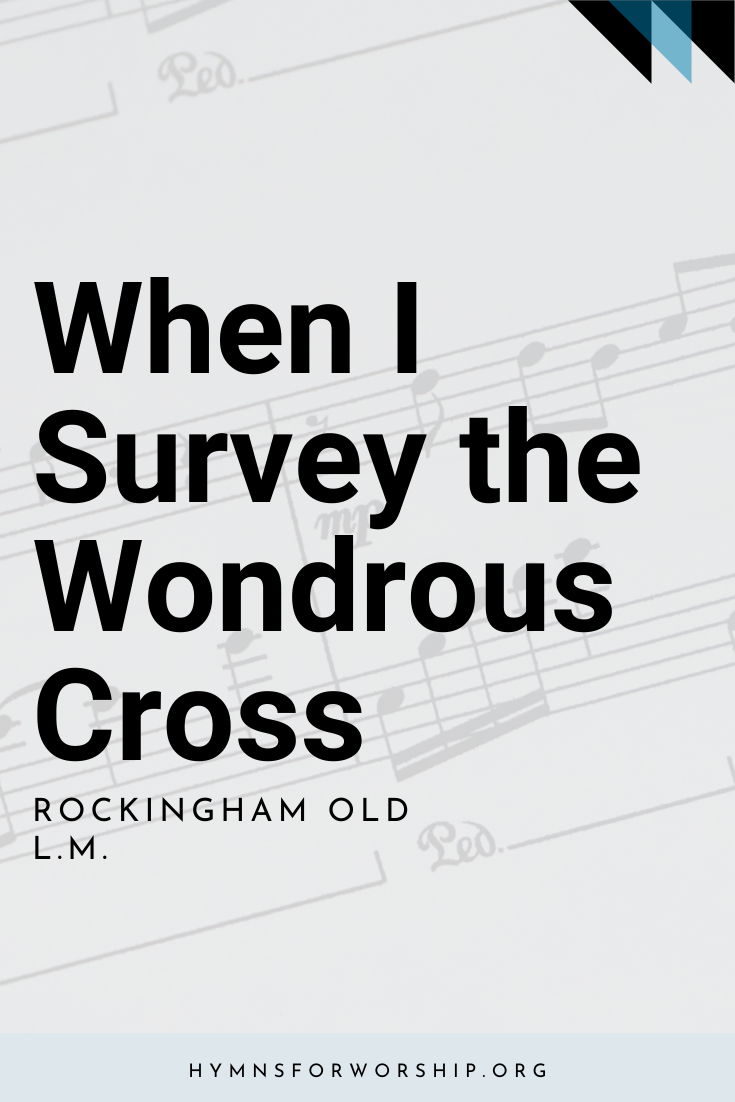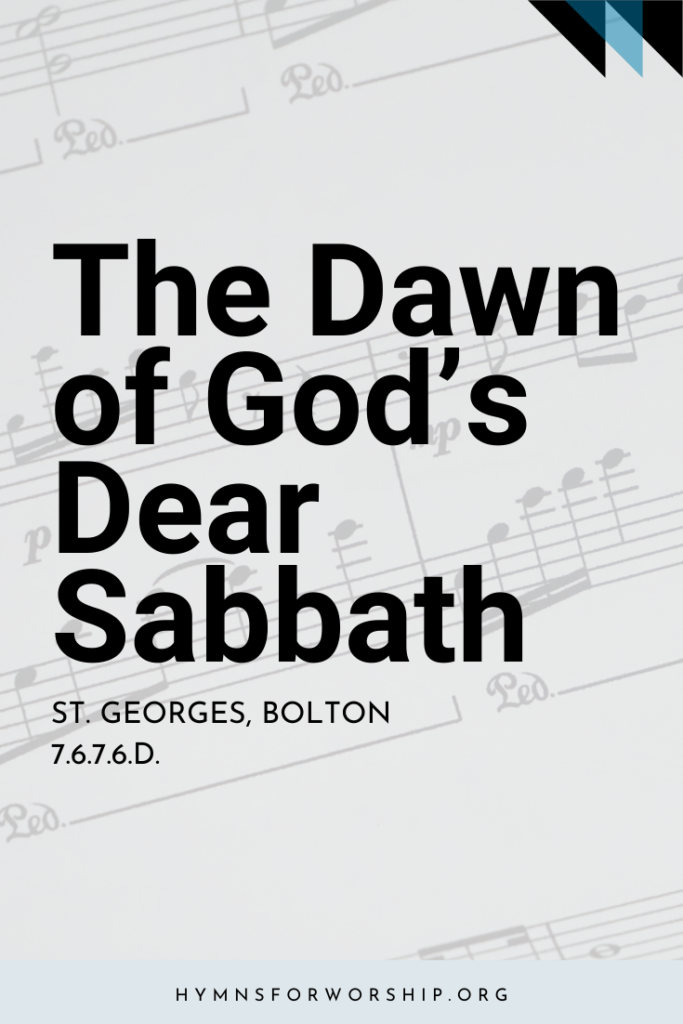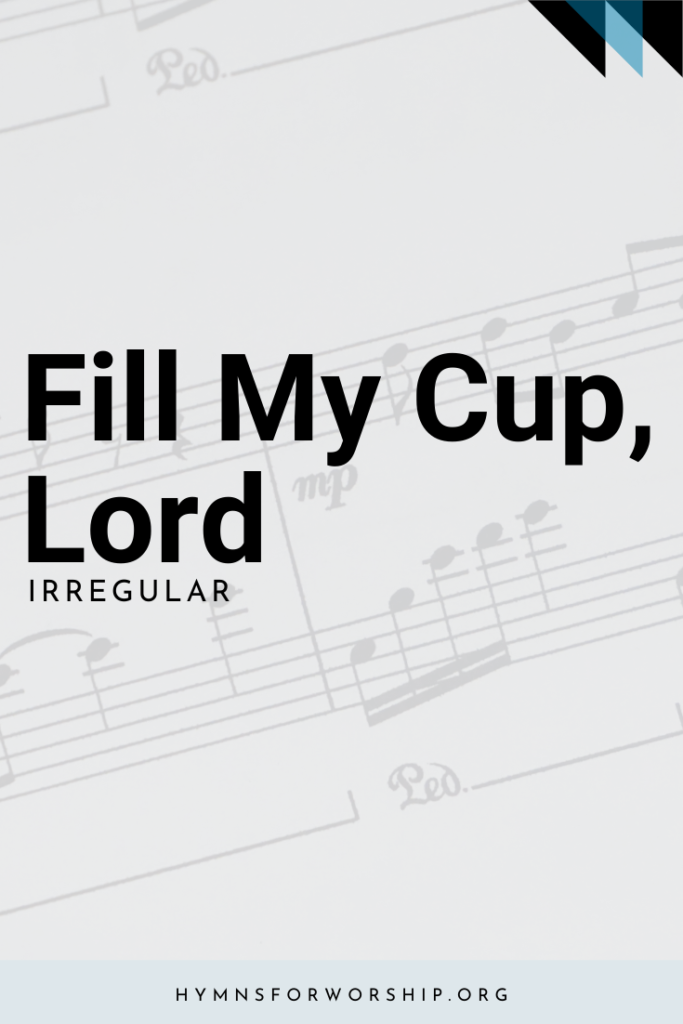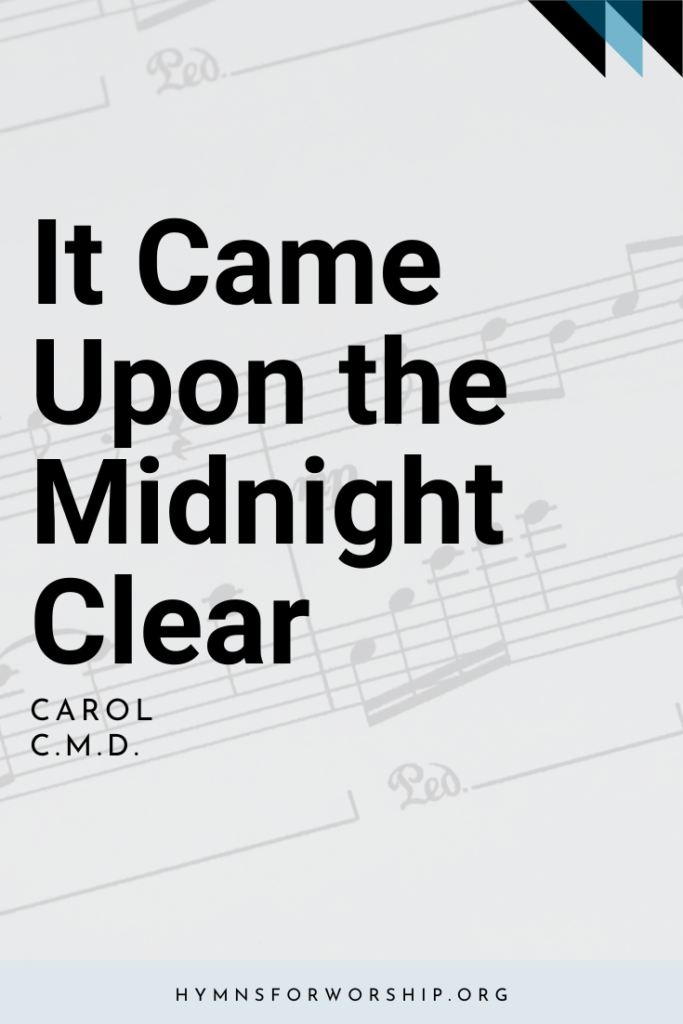JESUS CHRIST >> SUFFERINGS & DEATH
SDAH 155
When I survey the wondrous cross
On which the Prince of glory died,
My richest gain I count but loss,
And pour contempt on all my pride.
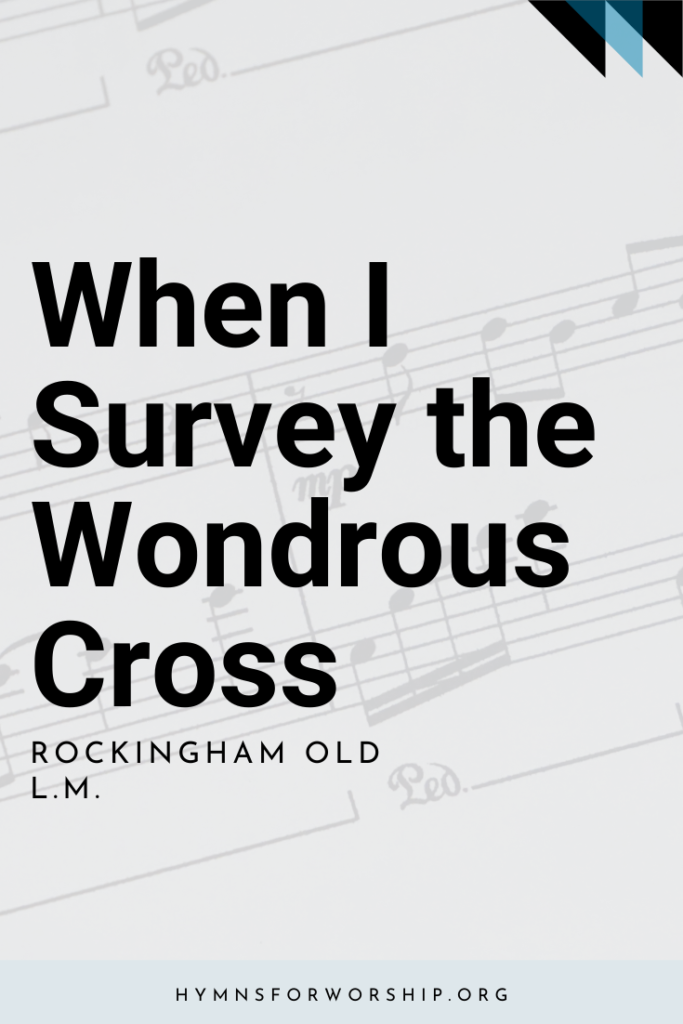
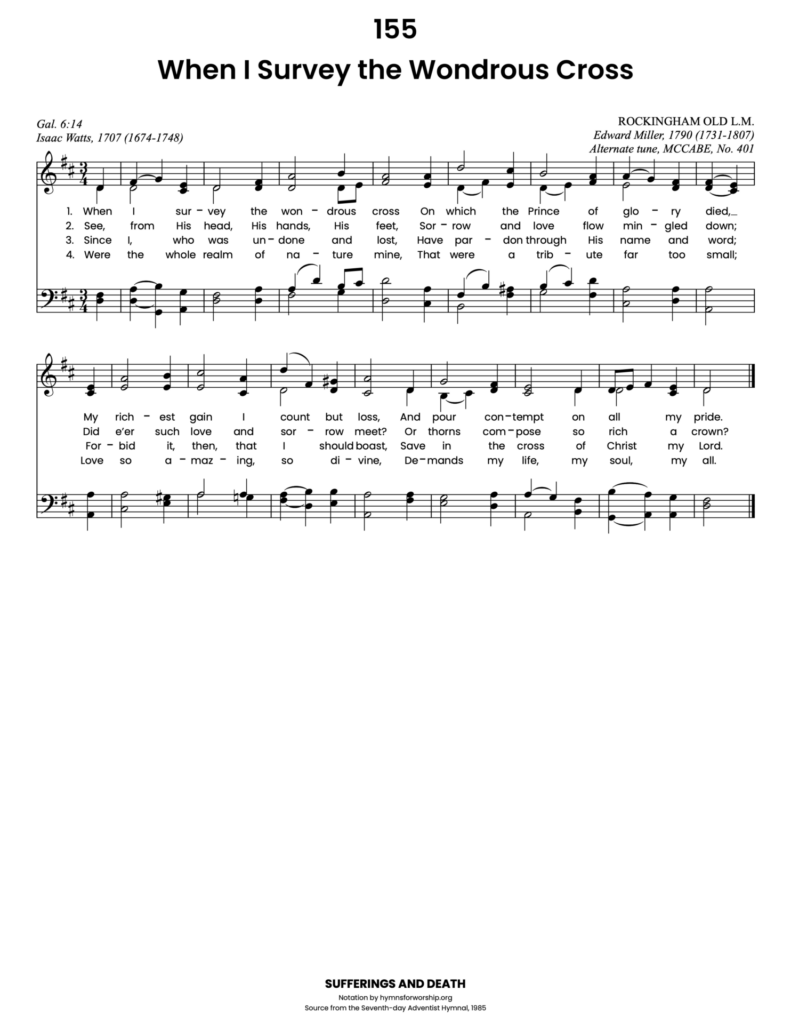
Get the hymn sheet in other keys here
For Worship Leaders
Make each hymn more meaningful with these helpful tools: Short, ready-to-use hymn introductions for church bulletins, multiple ways to introduce a hymn based on your worship theme and in-depth history and insights to enrich your song service.


Text
1
When I survey the wondrous cross
On which the Prince of glory died,
My richest gain I count but loss,
And pour contempt on all my pride.
2
See, from His head, His feet,
Sorrow and love flow mingled down;
Did e’er such love and sorrow meet?
Or thorns compose so rich a crown?
3
Since I, who was undone and lost,
Have pardon through His name and word;
Forbid it, then, that I should boast,
Save in the cross of Christ my Lord.
4
Were the whole realm of nature mine,
That were a tribute far too small;
Love so amazing, so divine,
Demands my life, my soul, my all.

Hymn Info
Biblical Reference
(a) Phil 3:8 (b) Gal 6:14 (c) Mark 15:17 (d) Matt 22:37
Author
Isaac Watts (1674-1748)
Year Published
1707
Hymn Tune
ROCKINGHAM OLD
Metrical Number
L.M.
Composer
Edward Miller (1731-1807)
Tune Source
1790
Alternate Tune / Rhythm / Harmony
MCCABE SDAH 401
Notes
Make each hymn more meaningful with these helpful tools: Short, ready-to-use hymn introductions for church bulletins, multiple ways to introduce a hymn based on your worship theme and in-depth history and insights to enrich your song service.

